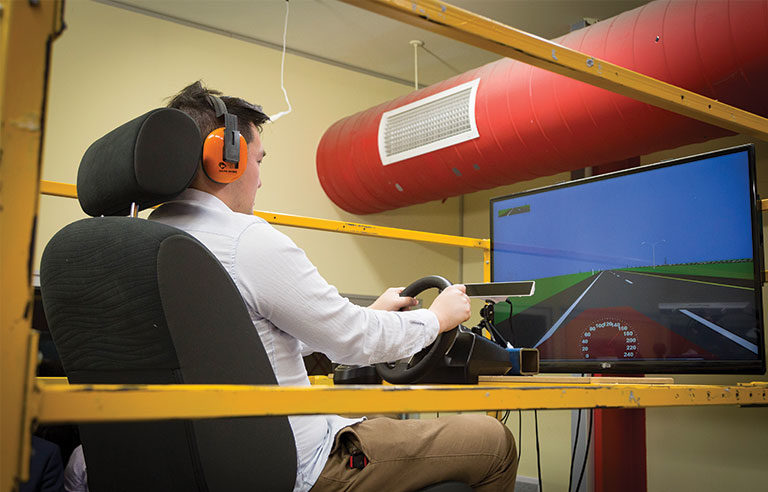Vehicle vibrations may make drivers drowsy: study

Melbourne, Australia — You’re driving on a country road, when you suddenly find yourself getting very, very sleepy. One potential culprit? Vibrations, according to a recent study from RMIT University.
Researchers asked 15 volunteers to drive in a simulator that recreated “the experience of driving on a monotonous two-lane highway,” a July 5 university press release states. Participants went through two simulations: one with vibrations at a frequency of 4 hertz to 7 hertz and one without vibrations. The researchers also measured the volunteers’ heart rate variability to gauge drowsiness over the 60-minute test.
Participants in the vibration simulator showed signs of drowsiness within 15 minutes. Within 30 minutes, they needed “substantial effort” to stay alert, with drowsiness peaking at the one-hour mark.
The researchers hope auto manufacturers can use the findings to create car seat designs that help drivers stay awake.
“Our research also suggests that vibrations at some frequencies may have the opposite effect and help keep people awake,” associate professor and study co-author Mohammad Fard said in the release. “So we also want to examine a wider range of frequencies, to inform car designs that could potentially harness those ‘good vibrations.’”
The study was published online June 6 in the journal Ergonomics.
Post a comment to this article
Safety+Health welcomes comments that promote respectful dialogue. Please stay on topic. Comments that contain personal attacks, profanity or abusive language – or those aggressively promoting products or services – will be removed. We reserve the right to determine which comments violate our comment policy. (Anonymous comments are welcome; merely skip the “name” field in the comment box. An email address is required but will not be included with your comment.)

